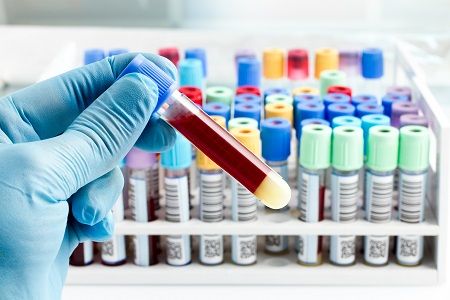Article
Late HIV Testing Drives Transmission Rates
Author(s):
One out of eight people infected with HIV don’t know it, according the CDC. Although these patients don’t make up the majority, they are still a key driver behind the epidemic.

One out of eight people infected with the human immunodeficiency virus (HIV) don’t know it, according to the Centers for Disease Control and Prevention (CDC). Although these patients don’t make up the majority, they are still a key driver behind the epidemic.
A new study out of the University of California (UC), Riverside found just how dangerous it is when someone is diagnosed at a later HIV stage. Published in Medicine, the researchers conducted the analysis in Riverdale County — noted for being the sixth most HIV/AIDS impacted county in California.
“Although free confidential testing is available throughout Riverside County, more than 30% of new HIV diagnoses qualified as late-to-test, that is, they received an AIDS diagnosis within 12 months of a seropositive HIV result,” lead author Brandon Brown, PhD, MPH, from the School of Medicine at UC Riverside, said in a UC story.
The team looked at data from the 1,385 people diagnosed with HIV between 2009 to 2014 in Riverdale County. Out of this cohort, 88% were male, 72% were born in the US, 48% were Caucasian, 36% were Hispanic, and the average age was 39.5 years old. Most of the participants (70%) became infected from having sex with another man who had the disease.
Despite the fact that there is free confidential HIV testing throughout Riverside County, a total of 422 people (30.5%) were late-to-test — defined as being diagnosed with AIDS within 12 months of their HIV diagnosis. The CDC advises that everyone ages 13 to 64 get tested for HIV as a standard part of healthcare, but we know that not everyone follows this. Many people are uncomfortable with the topic or think that they aren’t at risk. However, it’s these mentalities that continue to drive infection rates.
The results showed that those ages 45 to 64 were at an increased risk for being late-to-test. In addition, those who were uninsured and Hispanic, but not other minorities, fell into this increased risk. The racial/ethnic difference, however, could be skewed just because many participants in the study were Hispanic. Foreign patients were also at an increased risk for late testing.
In order to more effectively prevent transmission, people need to know that they actually have HIV — which is why testing is so important. Previous research suggested that people unaware of their HIV-positive status are four times more likely to transmit it.
“HIV testing is important for everyone, and most important if done early to extend life, to prevent transmission, and to save on medical costs. Universal testing, the gold standard, is not routinely practiced. We are working to change this,” Brown concluded.
Related Coverage:
Baby Boomers’ Behavior Adds to HIV Risk
Looking at the HIV/AIDS Epidemic Through Puerto Rico’s Lens
People with HIV and Chronic Pain Don’t Lose as Much Function as Expected





